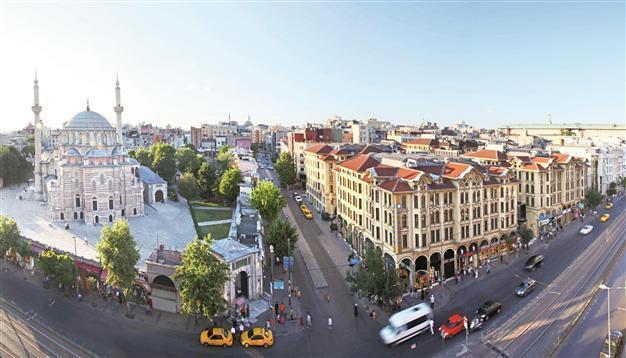Turkish suitcase traders hit by Russian crisis, eye new markets
ISTANBUL

Billions of dollars in suitcase trade is predicted to be exchanged in the Istanbul district of Laleli every year, with most of the transactions made in cash.
Turkish suitcase traders have begun to feel the impact of the Russian economic crisis and are focused on diversifying their markets, while maintaining their ties with Russian market players, said Gıyasettin Eyyüpkoca, head of the Association of Industrialists and Businesspeople of Laleli (LASİAD), an Istanbul district known as the center of the suitcase trade industry.“Russia has suffered from huge economic problems and the ruble has lost great value in recent months. This has caused a significant decrease in the Russian people’s purchasing power. We, as the business representatives of the suitcase trade with Russia, have been one of the groups most negatively affected by this situation. The number of our Russian customers has decreased almost 75 percent in January from the same month in 2014,” he said to Hürriyet Daily News.
He said the association members are now working on maintaining their pricing policy to preserve their share in the Russian market.
Turkey’s exports to Russia decreased by 32 percent, to $314.9 million in January, from the same month of the previous year, according to the latest data. Russia has regressed to 9th after formerly being Turkey’s 6th-largest export market.
The suitcase trade has played a large role in the trade between the two countries. In this kind of trade, small merchants from Russia and other former Soviet states buy Turkish textiles to sell back home in small scales. They use one or two suitcases that they could take on the bus back home.
Billions of dollars in trade is predicted to be exchanged in Laleli every year, with most of the transactions made in cash.
Eyüpkoca said LASİAD members praise their economic and trade ties with Russia, as well as cultural ties, and they could not even think of the possibility of losing them.
“As we recovered our ties after the 1998 economic crisis, I strongly believe we’ll do so again. Our economy ministry has already taken our recommendation to mend the ties. We hope we all see solid policies in the near future,” he said.
He also noted the association has already been working on diversifying its export markets.
“We have built trade and tourism relations with more than 55 countries, including African countries. We also plan to increase our trade with Iran and we’ll be attending Iran’s Tehran Fashion Fair on Feb. 1-4, and we’ll be organizing a fashion fair in Laleli in August,” he said.
















